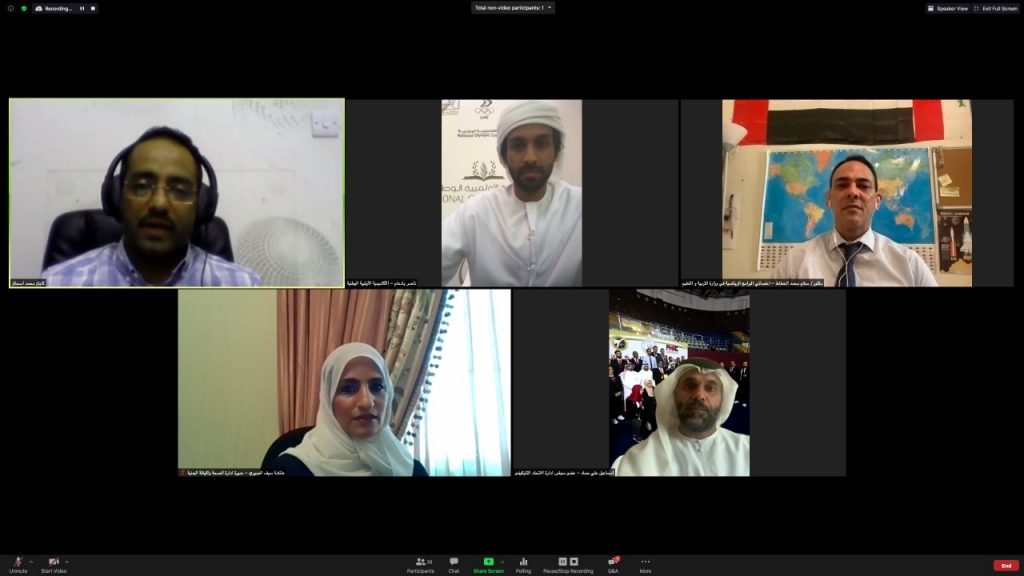
- ARAB NEWS
- 31 Jul 2025

DUBAI: The school Olympics coaches courses held by the National Olympic Academy in cooperation with the Ministry of Education and sports federations for judo and taekwondo have been completed. About 100 coaches from the two sports attended the courses, which are part of remotely held series of courses that will be held up to August 20.
Judo course started with the principles of training of athletes of different age groups delivered by Dr. Salam Al Khattat, Sports Programmes Specialist, Ministry of Education.
It covered the basic training of the judo player and the physiological and psychological aspects of junior players, including the physiology of training and sports, specialized training for juniors and the determinants of their training volume.
The weekly training course for juniors (strength and compatibility course) explained the weekly training rate of (1 – 3) training sessions for building the strength and compatibility, provided that they are reinforcing exercises for the kinetic aspect and improving the player’s ability to avoid injuries.
The course reviewed the prevention of young athletes from the negatives of early specialized training, long-term training, planning of sports training, and the basic principles of sports training (training for competition) such as overload, progressive development, specialization, hospitalization, returnability, individuality, and adaptation.
The judo coaches course reviewed the stages of the overall structure of the training course, namely the preparation phase, the pre-competition phase, the competition phase, and the transition phase. It also covered the bio-rhythm of the young athlete, and the rest periods along with their relationship with the type of training.
The course discussed the tasks of the judo coach highlighted by maintaining the players for the longest possible period to achieve the goals of players themselves, the responsibility of the coach, and the player’s health for the sake of health prevention and establishing a balanced life system, besides protecting players from doping and providing them healthy nutritional guidance.
The Taekwondo trainers course summarized the basic rules of training juniors, and the general foundations of taekwondo training through the scientific material presented by the lecturer Mohammed Ishaq. The lecture covered different ages groups in the game and the characteristics of each stage.
Mohammed bin Darwish, Executive Director of the National Olympic Committee, stressed the importance of the coach in the sports training system.
“The coach is the educationist responsible for raising and training players and trainees and impacting their athletic performance. The coach is instrumental in the sports training and assumes the responsibility to plan, lead, organize and implement the processes, as well as shaping the personality of athletes in a comprehensive and balanced manner,” he noted.
“The duties of the coach include pedagogical, educational and developmental aspects. The pedagogical dimension is concerned with the bringing up of youngsters to love sports. It ensures that the high-level of specialized sports meets the basic needs of the athlete, and shapes the motives of the athletes in a way that serves the nation, and instil good educational values such as patriotism, sportsmanship, and forming voluntary features,” added Bin Darwish.
The School Olympic courses resume this Sunday starting with swimming. A day will then be designated for each sport entered in the training programme until August 20.